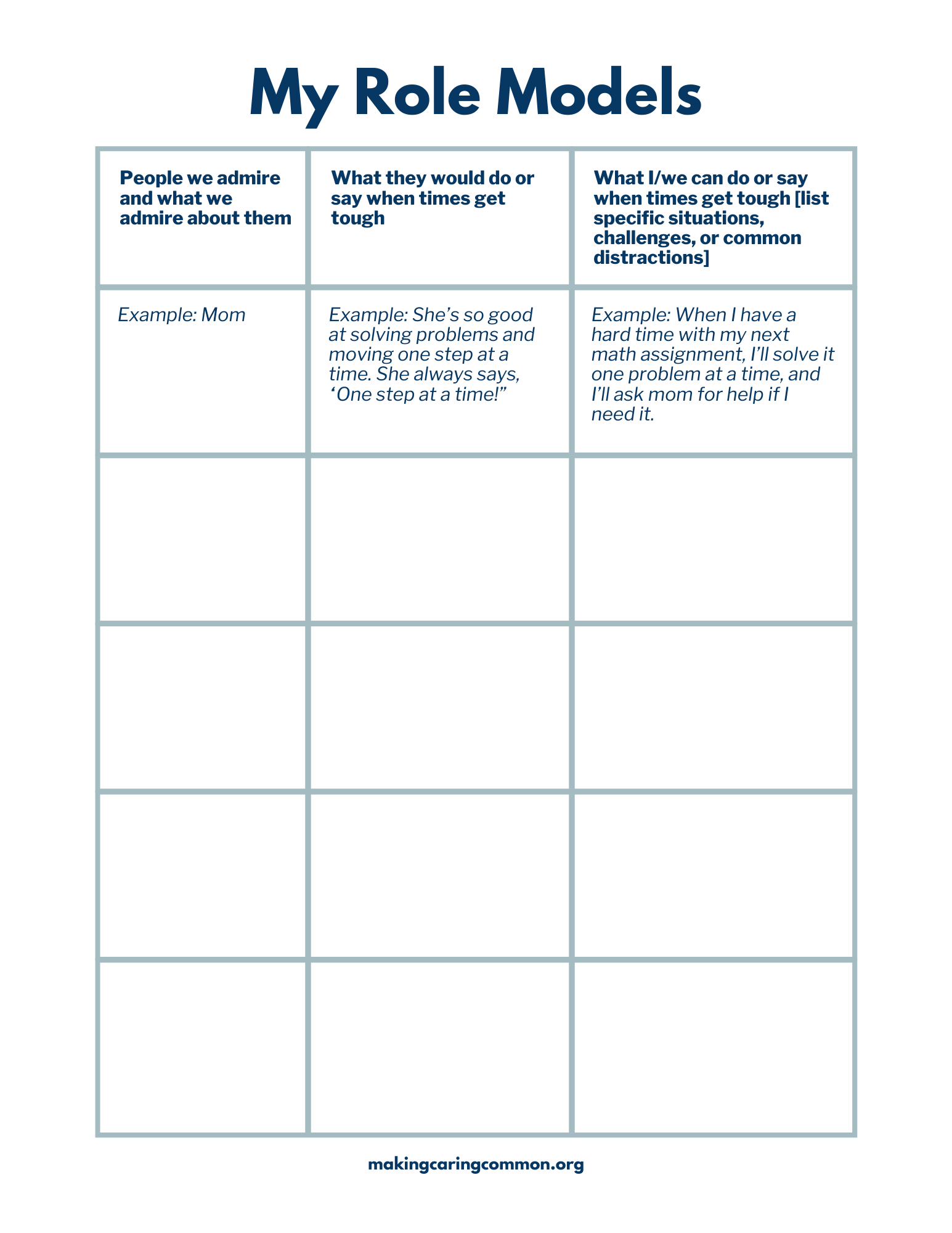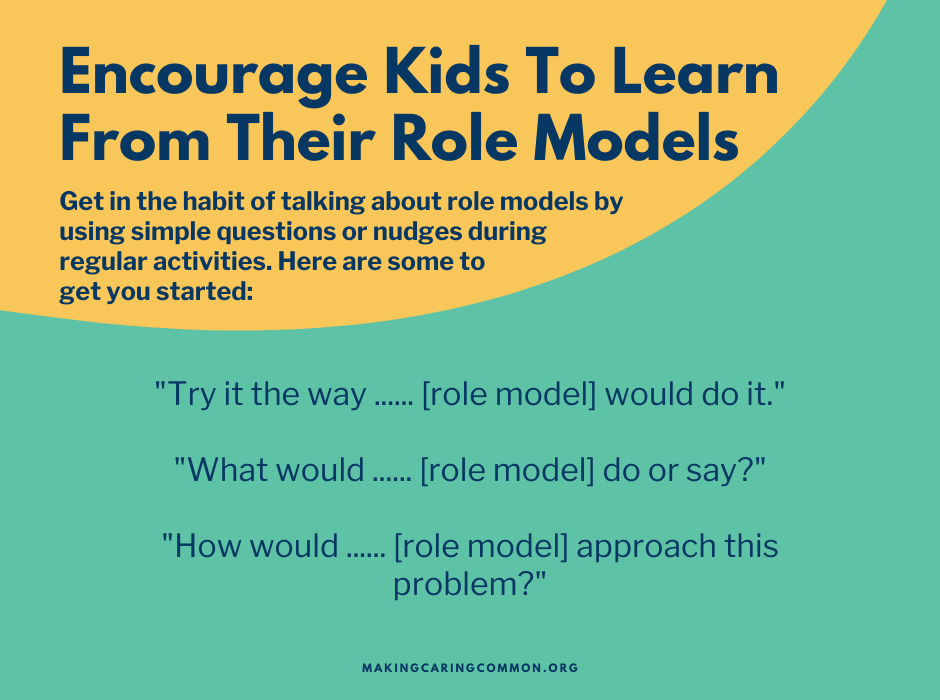How to Use Role Models to See Things Through
Let’s face it: most kids would rather do something fun than something hard or boring. The good news is, a simple but powerful strategy has been shown to help kids make better decisions and delay the fun so they can work through the hard stuff. Encourage kids to imagine or pretend to be someone they admire - whether a fictional character or a person from real life - so they can approach tough situations from that role model’s point of view. This not only helps them to further develop their perspective taking skills, it also sharpens their ability to stay focused and persevere in the face of tempting distractions.
Below are four key steps for adults to help kids overcome challenges by pretending to be someone they admire.
1. Ask kids how they’re doing when something seems hard
Notice when kids want to give up or seem bored, whether it's because they have to do something they don’t enjoy (like putting away their toys) or because they are working on something that is hard (like trying to solve a tough math problem). Kids won’t always ask for help when they need it, so be on the lookout for signs that your kid might need your support.
2. Talk about each other’s role models
Talk with kids about people you each look up to or admire, including people from your lives, famous people, or characters from books, shows, or movies. Together, discuss situations in which each other’s role models could have given up but didn't, and what the role model would do to persevere through tough times or difficult tasks.
Here’s a printable activity sheet for listing the people we admire, what we admire about them, and how we can learn from them in our own lives.
For kids who would rather draw, use this fun printable ‘Draw Your Role Model’ activity sheet.
Draw Your Role activity worksheet
3. Try it as your role model!
Suggest that kids try their tough or boring task as one of the role models they named earlier. For example, you could say, “Try it the way Aunt Maria would do it” or “What would Black Panther do or say?”
TIp for parents: If you shared some of your own role models earlier, you could also role play. For example, you could be really bored getting something done for work or the house, but you could say, “You know what, I want to be grandma right now, because grandma would just keep going, knowing she needs to get this done so she can sit and enjoy her favorite TV show!”
4. Make it a habit
Try to be intentional about discussing role models when challenging moments arise, or revisit the Role Models activity sheet every now and then to choose a new role model to learn from. To make this a habit, use simple questions or nudges regularly to remind kids about learning from our role models.
Encourage kids to learn from their role models
Overview
For: Parents, Caregivers, and Adults who engage with kids
Ages: 7-10
Resource Type: Activity
Additional Information
The Science Behind These Recommendations
Hard work or perseverance is a topic that has been researched extensively. Here are key resources we consulted - in addition to experts and parents - that are behind the recommendations shared on this page:
Karniol, R., Galili, L., & Shtilerman, D., Naim, R., & Stern, K., & Manjoch, H., & Silverman, R (2011). Why Superman can wait: Cognitive self-transformation in the delay of gratification paradigm. Journal of Clinical Child and Adolescent Psychology, 40, 307-317. [Abstract]
Patterson, C. J., & Mischel, W. (1976). Effects of temptation-inhibiting and task-facilitating plans on self-control. Journal of Personality and Social Psychology, 33(2), 209–217. [Abstract]
White, R.E., & Carlson, S.M. (2016), What would Batman do? Self-distancing improves executive function in young children. Developmental Science, 19, 419-426. [Abstract]





